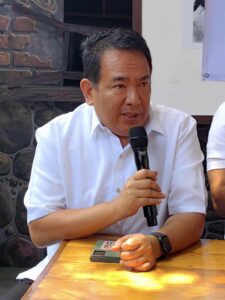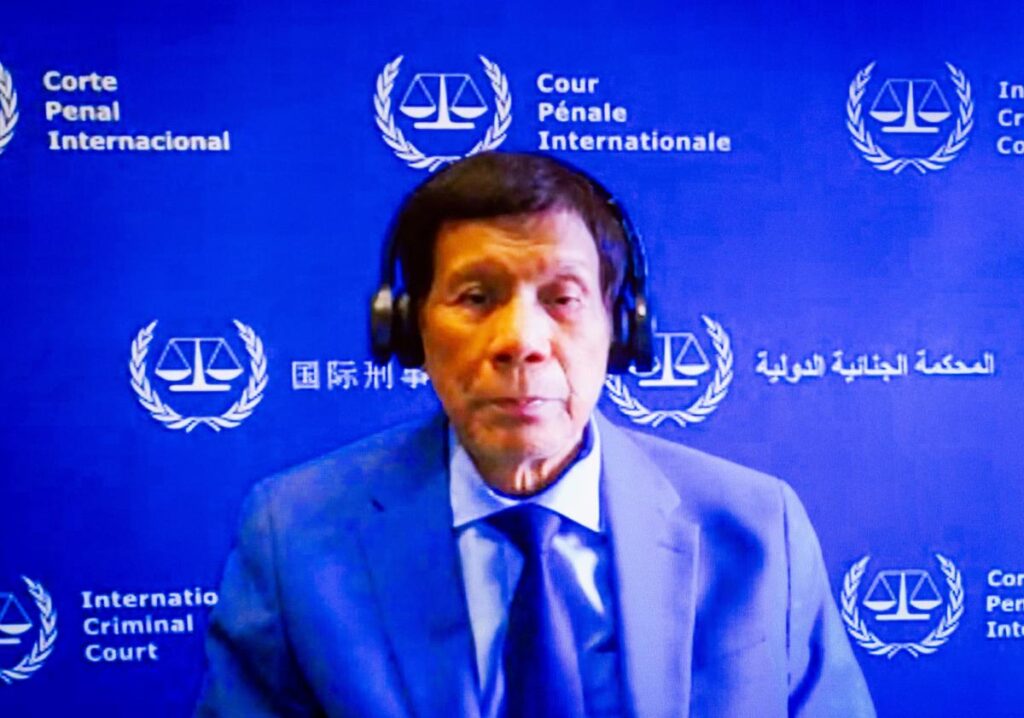By Diego Morra
It is actually fruitless for Filipino journalists to expect Presidential Task Force on Media Security (PTFoMS) executive director and Undersecretary Jose Torres Jr. to admit that a culture of impunity prevails in the country for doing so could cost him his job, which pays more than when he was still pounding the beat or editing copy for Channel 7. Torres is merely singing what the PTFoMS jukebox has been playing during the Duterte regime and the previous administration. Scribes should grok him. The question is: Does he relish the sinecure that he occupies? Or does he need a new set of eyeglasses to better read and understand that media safety has not improved in these shores.
To be fair to all parties, the PTFoMS was not established to immediately solve the assassinations of journalists. It is not even empowered to investigate the killings of scribes or broadcasters. It cannot play cop but instead must act as a bureaucratic layer to compel the police and other investigative agencies to hasten the resolution of pending cases. Government can easily argue that many of the media killings were committed due to personal issues and business disputes. For the unlamented and detained Rodrigo Duterte, journalists are not exempt from retribution by aggrieved elements. In short, they are fair game, like Jun Pala.
The National Union of Journalists of the Philippines (NUJP), which was organized by the late Antonio Ma. Nieva, was not mistaken when it questioned why Torres was talking about the absence of the culture of impunity. Surely, Joe would deny his statement as a “word from his sponsor” but in reality, PTFoMS was not organized to wrestle with the demons responsible for the carnage now called “media killings.” In fact, PTFoMS should undertake a deeper inquiry into why broadcast journalists and publishers are being eliminated, particularly in the rural areas, with the brutal killings of Johnny Dayang and Juan Jumalon, also known on air as “Johnny Walker,” being gunned down in the safety of their own homes, or a former broadcaster and paralegal Ali Macalintal being killed at an acupuncture clinic in Gen. Santos City. Dayang and Macalintal were killed this year while Jumalon was shot dead in 2023.
In Jumalon’s case, the accused mastermind was acquitted, with the court not buying the prosecution’s theory. Torres has his job cut out for him even as earlier he survived one full year with not a single Filipino journalist being erased for doing his job. Well, Joe spoke too soon. On Oct. 20, Bicolano broadcaster Noel Bellen Samar of Kadunong Internet TV mad DWIZ was shot four times in Guinobatan, Albay, weas rushed to a hospital and died the following day. The New York-based Commission to Protect Journalists (CPJ) demand to act swiftly on the case. “Until President Ferdinand Marcos Jr.’s administration demonstrates that it is serious about ending impunity, these types of wanton attacks on journalists will persist,” CPJ senior Southeast Asia representative Shawn Crispin said.
The National Union of Journalists of the Philippines Albay Chapter condemned Samar’s killing, demanded a thorough investigation and argued “such an attack would not only be a personal injustice but a direct assault on press freedom in the province.” As usual, the PTFoMS extended its condolences to Samar’s family and friends, assuring them that the Special Investigation Task Group (SITG) is working closely with the police to make sure justice is served. “We stand in solidarity with journalists across the nation during these difficult times, reaffirming our steadfast commitment to upholding press freedom and ensuring the safety of all media workers,” Torres said. The Philippines ranked 9th in the 2024 Impunity Index, which tracks countries where killers of journalists are most likely to go unpunished. Worse, the Philippines belonged to the gallery of rogues, unable to wriggle itself out of the bloody list for 17 consecutive years. A good record for PTFoMS and proof that the culture of impunity is a mirage.
Torres was quoted as saying a culture of impunity does not exist in our version of paradise. He was not expected to say the opposite in the presence of the honorable officials of the National Police Commission (Napolcom), the agency responsible for supervising the Philippine National Police (PNP) that figured very well in the reported botched purchase of 80,000 assault rifles worth P8-billion for the policemen, which was opposed by PNP chief Gen. Nicolas Torre III and led to his being cashiered. Graft is not the monopoly of the Department of Public Works and Highways (DPWH) or the exclusive domain of Congress, the Department of Budget and Management (DBM), Commission on Audit (COA) and Malacanang. You expect the Office of the Ombudsman to investigate the assault rifle deal motu proprio? Fat chance.
To be consistent with its declaration, PTFoMS pointed out that of 199 cases of media killings since 1986, “only 75” have been linked to the victims’ work as journalists. “Conversely, 73 incidents were unrelated to their work, with no definite records on 12 cases,” it said. The numbers do not add up, for one, and Torres sounds more his predecessor who told United Nations (UN) rapporteurs that Filipino journalists are not being targeted by state agents and other malevolent creatures. Perhaps out of clerical error, Torres wanted to clarify the figures, issuing another statement that said 82 murder cases were work-related, including the 32 gunned down in the Ampatuan massacre of 2009, bringing the total number to 114. Samar is the eighth media workers killed under the Ferdinand Marcos Jr. government. In response to the NUJP statement, Torres presented a different number, saying 82 incidents were classified as “work-related,” along with 32 cases from the Maguindanao massacre, totaling 114 cases.
NUJP argued that by dismissing nearly half of the media killings as not work-related “ignores the cruel reality that justice in these cases remains elusive, and that state institutions have consistently failed to hold accountable those who silence the press.” It added that the existence of a culture of impunity has been adequately proved by findings by international groups like CPJ and others that list the Philippines among the world’s worst offenders of press rights, with all least 18 unsolved journalist murders, NUJP added. “Mistakenly minimizing the problem does not make journalists safer. What will make a difference is ending impunity by ensuring that every case of violence against the press is investigated swiftly and independently, and that both assailants and masterminds are brought to justice,” it stressed. PTFoMS might as well start working on media safety by asking state agents to stop harassing rural journalists like Frenchie Mae Cumpio, who continues to be incarcerated and slapped with a variety of non-bailable offenses, her tormentors preventing her from continuing her reporting for many years. Media safety also covers protection of journalists from state harassment and coercion.




